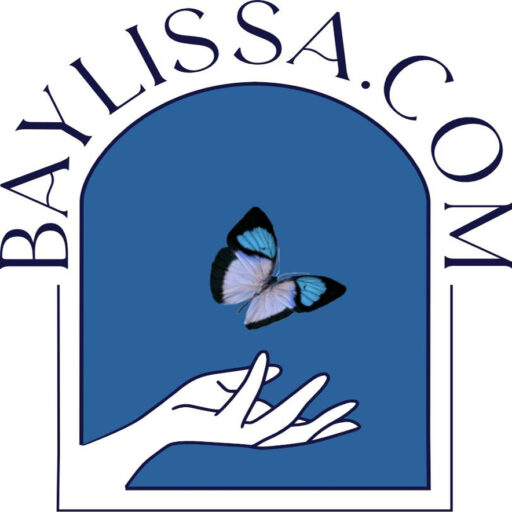THIS POST MAY BE TRIGGERING BECAUSE IT DISCUSSES WITHDRAWAL-INDUCED INVOLUNTARY MOVEMENTS. IF YOU DO NOT WANT TO READ ABOUT SYMPTOMS, PLEASE DISREGARD IT AND EXIT THE PAGE NOW. IF YOU ARE OKAY WITH READING ABOUT SYMPTOMS, I HOPE IT WILL BE REASSURING FOR YOU. THANK YOU.
—————————————————
Healing from Involuntary Movements Caused by Drug Discontinuation
This is written as a response to a comment on our Bloom In Wellness Facebook page. The person has dystonia as a symptom and does not expect it to go.
She wrote: “I know you want to keep the hope alive and that we should focus on the good, but not all people make it to the other side.”
Focusing on the good does not mean ignoring the truth. It would be very unethical of me to keep hope alive by conveying a false message. This is why I must be guided by what I have seen over the past 17+ years, and it is that everyone eventually makes it to the other side.
There are people who have pre-existing concerns or concurrent deficiencies and other problems, and yes, these conditions can remain after this healing process is completed (and they need to be addressed). But do not make the mistake of believing that people who are struggling for a long time will not heal. The anecdotal evidence confirms otherwise.
I would never be unethical and mislead people into thinking they will heal if I was not certain that they do. I am deeply sorry that some of you have been holding on, waiting for healing, for an unusually long time and I hope you will see improvements soon. Sadly, some people do take longer than anticipated or hoped, to heal. In some cases there is no particular identifiable cause, but in others the person may have had concurrent medical issues for which they have had to have major surgery and other medical intervention, and this may have impacted the healing process. However, no matter what, in terms of withdrawal, ABIND, and neurotoxicity, etc., from what I have seen, they too will eventually heal.
Not seeing success stories from people with symptoms similar to yours does not mean they don’t exist…
I am sorry that you have not seen success stories of people with symptoms similar to yours. This does not mean they do not exist. We have very few stories compared to the number of people who recover, and this includes recovery from dystonic and other types of involuntary movements. Also, I have seen success stories from people who had this problem and many of them have not mentioned it specifically, as a symptom. As people put this experience behind them, the memory fades and I find it fascinating when I see how much they forget.
I am sorry that you feel isolated. I have supported a significant number of people over the years who were bedbound or housebound due to withdrawal-related dystonic and other types of involuntary movements. This is not as rare as you think. Many people who have this symptom reach out to me because they know I had and still have dystonia. So, whether the movements were induced by withdrawal/ABIND or neurotoxicity or they were pre-existing, they get in touch. What you may not know is that some of them are not online and are not members of any group. You will not see their stories.
Some people have dystonia that is segmental or generalised but with it they also have spasmodic dysphonia and severe blepharospasm. They communicate with me via family members. What you see online is not representative of everyone.
I have a library of videos from people with dystonia who healed…
I have a library full of videos people have sent to me over the years, with all variations of involuntary movements: focal, segmental, and generalised dystonia, dyskinesia, non-epileptic convulsions, facial and other types of spasms, tremors, vocal tics, motor tics, simple tics, complex tics, ataxia-type problems, and more… The severity, frequency, and patterns of movement changed for some people and for others they were consistent. Some people had them throughout the withdrawal with no breaks and for others the movements were random or intermittent.
Every single one of them healed. Some took longer than others, but I am not aware of a case where the person did not heal, except for those still awaiting the end of the process like yourself (still within the timeframe – meaning we know of other cases that took as long and have healed).
Think of the more fragile friends who are healing…
Please be careful. It is better not to say you know for sure some people don’t heal. This statement can have serious repercussions. Apart from the fact that this is not true, comments like these in groups cause people to become desperate and increases the risk of those already activated. It is absolutely not supported by any evidence, and it is concerning when these statements are made.
I recall many years ago there was someone who kept posting comments about not healing in groups. I was alerted to it because some people were badly affected and were talking about giving up. What happened? This person is now completely healed but one of the people who would read the comments and freak out was not able to hold on and gave up. Please, I encourage you and others who do this, to think of the people who are more fragile emotionally, more isolated and without support, and are losing hope.
As I have said, there is no evidence to support this inaccurate claim that people with dystonia as a symptom of coming off the drug do not heal. It is absolutely not true and as someone who had severe worsening of pre-existing dystonia because of withdrawal, I ask that anyone with it please continue to allow time for your healing. Just as the person to whom I am responding feels, I was convinced that the worsening of my dystonia was my ‘new normal’ and that I would never improve. My dear mentor, Professor Heather Ashton, kept encouraging me to give it more time. I will admit I doubted her. I did not fully believe the frequent, violent, seizure-type movements would go, but she was right. Eventually I was able to drive again and completely heal from the withdrawal.
Don’t accept as your truth, a verdict you don’t want…
Do not give yourself a verdict that you would rather not have. Is what you are telling yourself something you would say to someone you care about? Because people are many years out and still healing, it does not mean they won’t or don’t heal. People have been going through withdrawal for 70-plus years. If people who had dystonia as a symptom did not heal, we would by now have a group with thousands of people who still have dystonia.
Dystonia as a result of withdrawal is different to drug-induced dystonia. Drug- induced dystonia is most common in people who reacted to mainly antipsychotics or anti-emetics (although it can be caused by antidepressants, benzodiazepines and other drugs too). It quite often occurs at the early stage of treatment (within 7 days of starting the drug). In almost all instances, drug-induced dystonia is reversible, and will resolve when the drug is discontinued. Withdrawal-induced dystonia and other involuntary movements are also reversible and, as the anecdotal evidence confirms, they will resolve when the healing process is complete.
I hope this helps. There is not one person who had withdrawal-induced dystonia that has exceeded the usual timeframe who has been in touch with me to say it did not go away. Please give yourself a chance to heal and let go of the narrative of being permanently injured. As unfathomable as it might be right now, please accept that it will go. This, too, shall pass. You are healing and, in time, you will have evidence of this.
With much compassion,


